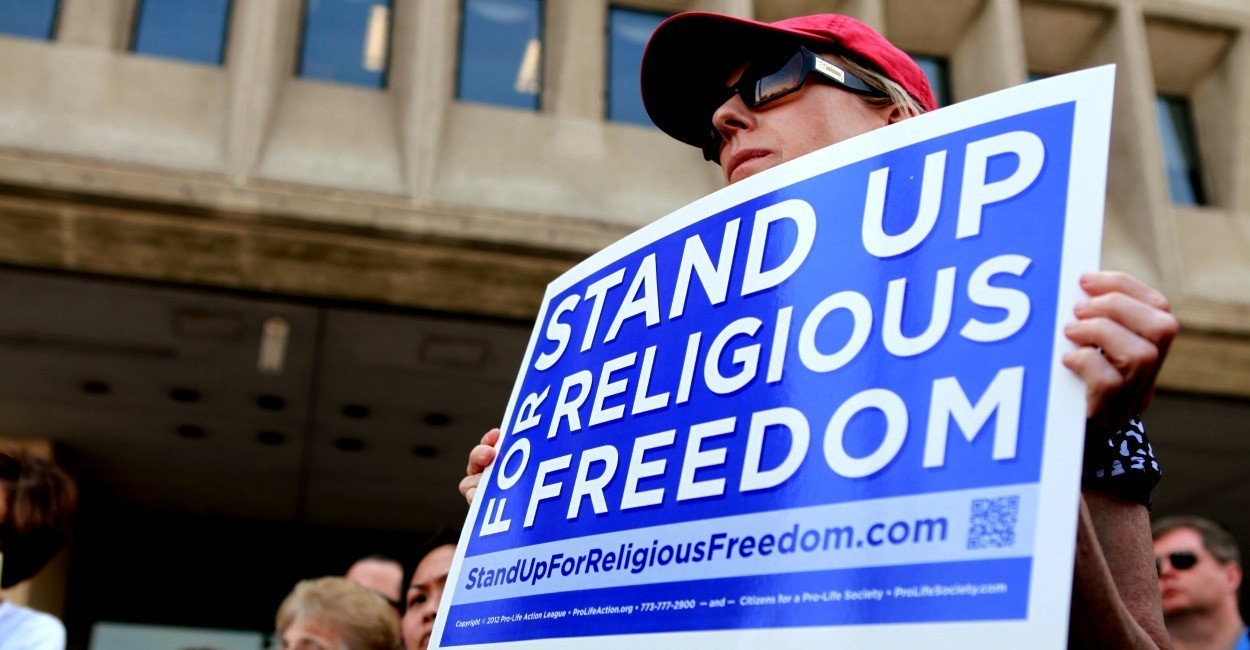Apostasy, apparently a human rights-related issue, is highly sensitive to the multi-racial and multi-religious character of Malaysia. It tends to be problematic, untenable to some, especially when it deals with conversion into and out of Islam. It is true, the whole question involves certain legal and social implications. At times, its repercussions appear to rattle the social solidarity and religious harmony of our peaceful nation. All these threatening consequences are actually caused by ignorance. This writing is not to incite further dissension. Neither is it intended to sound apologetic. On the contrary it calls for all parties directly or indirectly affected by the subject matter, Muslims and non-Muslims alike, to view it with an open heart guided by wisdom.
Scholars have admitted that Islam is the most misunderstood religion of all world religions. Misrepresentations and misperceptions about it are causing many to hurriedly develop an unjustified Islamophobia. This syndrome is actually a “fear of the unknown” as these people do not really understand what Islam is all about. Many simply accept the many global misrepresentations incessantly put to them via the media.
Seen through the lens of discourse on human rights, apostasy in Islam has been notoriously brought into conflict with the doctrine of human rights in general, and with the notion of freedom of religion in particular. Among the questions raised is, if Islam can easily be embraced, by the same token, why does it not allow Muslims to leave Islam ?
It is unquestionable that Islam indeed recognizes human rights, in fact from its very inception, long before these ideas were developed and documented in its modern secular form by the West like the United Nations Universal Declaration of Human Rights, 1948. Islam, as systematically reflected by the Cairo Universal Islamic Declaration of Human Rights, 1981, advocates human rights via shariah. These objectives include the establishment of justice, individual education and preservation of human welfare or interests by protecting and preserving the freedom of thought, worship, rights to property and preservation of the progeny. These constitute the inviolable principles of “human rights”.
What many fail to understand is that Islam is probably the only religion that honors its followers to the utmost. Islam regards its adherents, both originally born Muslim as well as converts, as invaluable assets. Once they come to the fold of Islam, they stand equal. Therefore, the responsibilities, duties and rights of all Muslims are basically the same. Individually, they are equally entitled to achieve success in this world as well as salvation in the hereafter, guided by and within the parameters set up by shariah.
Muslims firmly believe that they are in the territory of truth, the right path. They are bathed in the brightest light. For Muslims, truth is light, falsehood is darkness. Therefore, it is a grave injustice to them if they were to deviate from that truth. Furthermore, the fact that Islam prohibits apostasy reflects the integrity and credibility of the religion. If Islam were to grant permission for Muslims to change religion at will, it would imply it has no dignity, no self-esteem. And people may then question its completeness, truthfulness and perfection.
Echoing the observations of Syed Muhammad Naquib al-Attas, “rights” or huquq in Islam refers to something that is right, true, correct and proper. “Freedom” or ikhtiyar means a choice for the good or better. So it is neither one’s right nor is it freedom to choose something evil, false, wrong, incorrect or imperfect.
Religiously, morally and legally, man has no right to do wrong. Nevertheless, there are feeble, confused Muslims around. They may be the result of improper or inadequate education or the lack of exposure to the more comprehensive teachings of Islam. And due to worldly temptations, this weakness causes their religious foundations to become shaky. Apparently, their common feature is a lack of knowledge and understanding of Islam. So if one insists on adopting the aforementioned wrong conception of “rights” and “freedom”, one is actually exposing one’s shameful ignorance !
For converts, before they become Muslims, no matter for what reason, it is only reasonable that they must have a certain degree of basic knowledge about Islam. They must take efforts to study the fundamentals of the religion first. This is actually their responsibility and duty. Take note that rights do not come out of a vacuum ; they are accompanied by certain responsibilities and duties. For example, before one can exercise one’s freedom to buy a car of his choice, one must first obtain a driving licence. Without that document, one will only endanger oneself as well as others. One cannot scream to be given the right or freedom to buy if the requirement of responsibility is not fulfilled beforehand.
Muslims must understand that once they come into the fold of Islam, there is no question of leaving the faith or reverting to their earlier beliefs even if the very reason for one to come to Islam in the first place ceases to exist. One may be a bad or a non-practising Muslim, but there is hardly any room available for one to denounce that religion.
One cannot argue that Islam does not recognize the idea of freedom of worship. First and foremost, the very doctrine of Islam, as reflected in the Quran, teaches that there is no compulsion. Freedom of worship is to be understood not only in the sense of making a choice for the better, but also in the sense of freedom to practise a particular religion. Once one accepts Islam or decides to become a Muslim, one is subjected to all the rules prescribed by the religion.
If Islam forbids apostasy, not only the Muslims must observe it, but the followers of other religions that do not have such provisions must appreciate and respect this position as well. This is actually the freedom of worship that must be perceived by all.
[cite]


